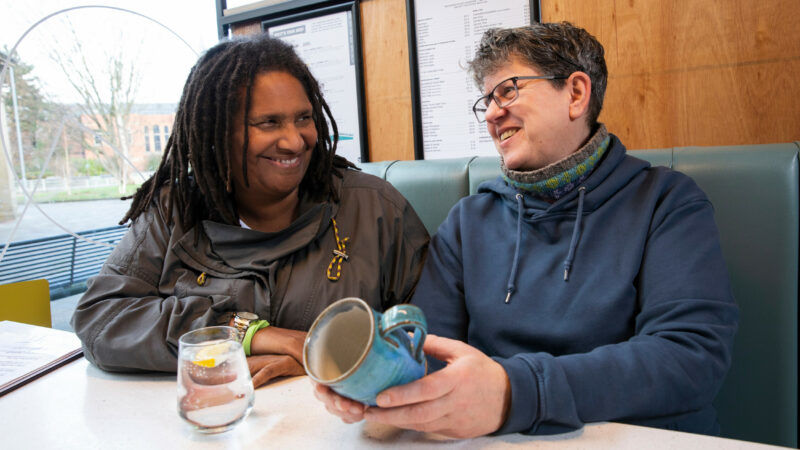Project overview
There is increasing evidence that the immune system may play a role in psychosis.
Our immune system defends us against harmful agents (such as a virus) and comprises the activation of certain cells and the release of certain molecules (immune markers). Antipsychotic drugs could act by changing the way that the immune system responds in the brain and elsewhere in the body.
This project aims to find out if, and how, the immune system can influence how people respond to antipsychotic drugs.
They will do this by taking blood samples (and in a small number of cases fluid from the spine using a procedure called a ‘lumbar puncture’) and measuring the immune markers present before and after someone starts taking an antipsychotic drug.
Project details
Antipsychotic drugs are the usual treatment for early psychosis. They can effectively reduce symptoms in the short-term. However, they have significant side-effects impacting functioning in day-to-day life.
Some stop taking their medication due to these side-effects and then they may get unwell again.
To address this, we need to better understand the specific ways that antipsychotic drugs act to both reduce symptoms and cause side effects.
This could guide the future development of more targeted and personalised treatments for psychosis with fewer side-effects.
This may help to reduce the number of people stopping taking their medication due to side-effects.
McPin are collaboratively leading lived experience involvement in this project alongside University of Oxford.
People with lived experience will be involved in four main ways:
- IMAT Lived Experience Advisory Panel (LEAP)
We will establish a Lived Experience Advisory Panel (LEAP).
This LEAP will comprise a diverse group of people with relevant lived experience, including people with direct lived experience of psychosis, as well as family members/friends of people with psychosis.
The LEAP will meet regularly, providing ongoing input over the whole seven-year duration of the study.
- IMAT Involvement Network
We will also establish a wider group of people with relevant lived experience who will input on a more ad-hoc basis but means people living anywhere across the UK can still be involved in the study.
Both the IMAT LEAP and Involvement Network will be facilitated and supported by McPin and University of Oxford staff who also have relevant lived experience.
- Ethical approval application
We will facilitate the full involvement of people with relevant lived experience in the application for ethical approval.
Particular care will be given in considering arrangements for people who may lack capacity to consent to inclusion in research and their family members/friends; as well as the co-production of resources to help inform, recruit, and support potential study participants.
- Public understanding
We will produce a study website and booklet aimed at improving public understanding of biomedical research.
At later stages we will also be producing accessible resources for dissemination of study findings and showcasing lived experience involvement in biomedical research.
For more information, please email [email protected].
You can also find out more in the following external papers:
Related blogs
Related projects
Work with us
We are always excited to hear from others who want to collaborate on mental health research. From delivering peer research to helping you with public involvement strategies and providing training, get in touch to chat.







